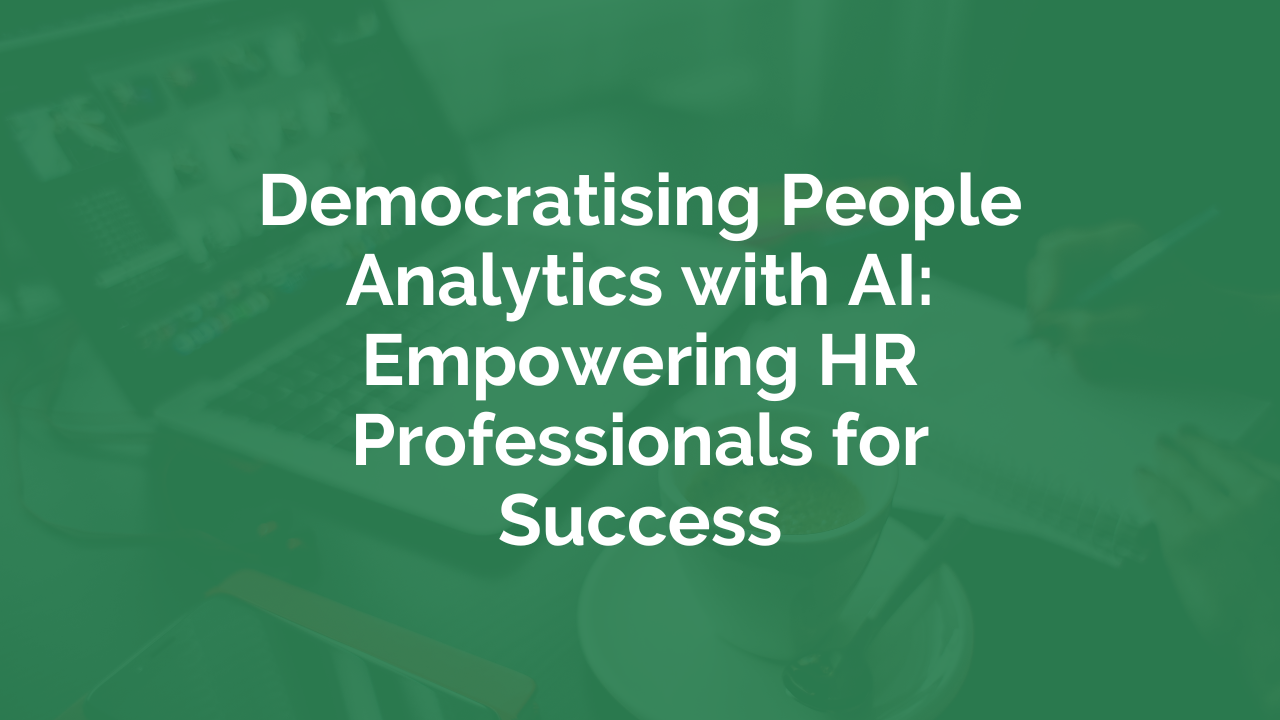Talent intelligence is a relatively new field that has grown in importance over the past few years. What was once a function limited to talent acquisition professionals is now being recognised as an essential tool for organisations looking to gain a competitive edge in the labour market.
Read MoreData literacy for HR professionals is defined as the ability to interpret insights from data and use them to inform decisions that create value in their everyday roles. This surpasses the technical skills needed to extract data from dashboards or generate worksheets for reporting purposes.
Read MoreA data-driven culture is essential for the people analytics function to deliver value at scale for their organisation. Only through a partnership with data-literate HR colleagues can the people analytics team ensure it is working on the most important business challenges and scale solutions across the enterprise.
Read MoreThe role of the CHRO has evolved exponentially over the years. From a transactional service-driven function leader, the CHRO is now seen as a strategic partner who plays a pivotal role in aligning people-related strategies with the organisation's overall business outcomes and goals.
Read MoreJust as computers revolutionised the workplace in the past, data literacy is now the key to unlocking future success for individuals and organisations alike. C-suite executives around the globe are predicting that by 2030, data literacy will be just as important as knowing how to operate a computer. Similarly, recent Insight222 research found that 88% of CHROs surveyed consider people data and analytics critical to their HR strategy.
Read MoreA data-driven culture is essential for the people analytics function to deliver value at scale for their organisation. Only through a partnership with data-literate HR colleagues can the people analytics team ensure it is working on the most important business challenges and scale solutions across the enterprise.
Read MoreThe introduction of AI, including generative language models like ChatGPT, has brought about significant advancements in the field of HR. It is completely changing the HR landscape as we know it, helping HR professionals streamline their tasks and enhance their efforts and decision-making capabilities in areas such as L&D, recruitment, performance management, employee engagement, onboarding, and people analytics.
Read MoreOrganisational operating models are changing profoundly, transitioning from traditional job roles and hierarchical career ladders to a new era of a purpose-driven workforce. As HR leadership teams navigate this dynamic landscape, the key to success is harnessing people analytics to gain deeper insights into their employees' skills, experiences, and expectations.
Read MoreSince computers were first introduced in the workplace in the 1980s, technological advancements have continued to shape the way businesses operate. What once used to be manual processes are now automated and performed with the help of Artificial Intelligence (AI), improving HR efficiency and performance, enhancing transparency and consistency of decision-making, and promoting diversity and inclusion within organisations.
Read MoreWhen it comes to talent management, it's easy to get swept up in human capital metrics such as skills, qualifications, and experience. But as we delve deeper into the world of HR and people analytics, it becomes increasingly clear that measuring human capital alone is not enough. Social capital - the networks, relationships, and influence within a workplace - is just as important for measuring human potential and performance.
Read More









